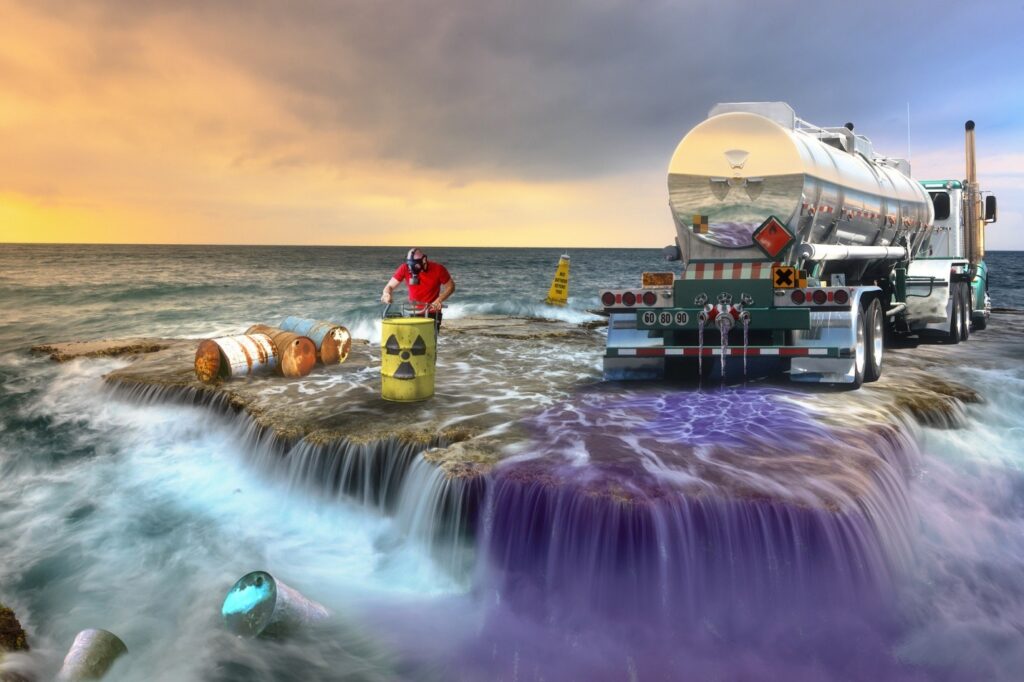The 8-Second Trick For Reclaim Waste
Table of ContentsThe Facts About Reclaim Waste UncoveredThe 5-Second Trick For Reclaim WasteSome Of Reclaim WasteThe 3-Minute Rule for Reclaim WasteThe Ultimate Guide To Reclaim Waste
Explore the types, events, and kinds of liquid waste. Residential sewage waste refers to the waste and products from a residential septic system. This type of waste is created by people in residences, schools, and other structures. This only consists of septic tanks that have a drain field. The appropriate administration and disposal of domestic sewage waste need fluid waste to be moved to a sewer treatment plant where the proper techniques and tools are applied to purify and throw away waste.
Industrial waste typically includes possible threats, such as combustible products or a mixture of fluid and solid waste products, and needs a much more innovative and comprehensive disposal procedure. The disposal of business waste generally involves the filtration of waste before transportation to make sure safe and appropriate disposal. Industrial waste is created from by-products and overflow of industrial processes and production.
This sort of waste can not make use of the same sewer management transport or processes as septic or industrial liquids. The commercial waste monitoring procedure needs the assessment and screening of liquid waste prior to it undertakes the disposal process (industrial wastewater treatment). Runoff waste is the fluid waste that originates from overflow and excess stormwater in very booming areas or cities
Overflow waste can create contamination and flooding if not managed correctly. Guaranteeing correct waste management can protect against catastrophes and reduce ecological injury.
The Ultimate Guide To Reclaim Waste
Contact PROS Solutions today to discover our waste administration and disposal services and the correct methods to care for the liquid waste you generate.
(https://www.find-us-here.com/businesses/Reclaim-Waste-Laverton-North-Victoria-Australia/34166924/)This so-called 'wastewater' is not only an essential resource however, after treatment, will certainly be launched to our land, rivers or the sea. Used water from toilets, showers, baths, kitchen sinks, laundries and industrial procedures is understood as wastewater.

water made use of to cool equipment or tidy plant and tools). Stormwater, a type of wastewater, is drainage that streams from agricultural and metropolitan locations such as roof coverings, parks, gardens, roads, paths and seamless gutters into stormwater drains, after rainfall. Stormwater moves untreated straight to neighborhood creeks or rivers, eventually getting to the sea.
Some Known Incorrect Statements About Reclaim Waste
In Queensland, most wastewater is treated at sewer therapy plants. Wastewater is transferred from domestic or commercial websites through a system of sewers and pump terminals, called sewage reticulation, to a sewage therapy plant. Local governments build, preserve and operate most sewage treatment plants. Operators are accredited under the Environmental Management Act 1994 to release cured wastewater at an appropriate environmental standard right into rivers.
The Department of Natural Resources suggests city governments regarding managing, operating and preserving sewage systems and treatment plants. In unsewered locations, regional federal governments might need homeowners to set up specific or family sewer therapy systems to treat residential wastewater from toilets, cooking areas, restrooms and laundries. The Department of Natural Resources authorizes making use of home systems when they are verified to be effective.
The majority of stormwater obtains no therapy. In some brand-new communities, treatment of some stormwater to eliminate clutter, sand and crushed rock has started making read use of gross contaminant catches. Wastewater therapy happens in four stages: Removes strong matter. Bigger solids, such as plastics and various other items incorrectly discharged to sewers, are removed when wastewater is gone through displays.
Wastewater after that flows right into huge storage tanks where solids clear up and are gotten rid of as sludge. Grease and residue are skimmed from the surface. Uses small living microorganisms referred to as micro-organisms to break down and eliminate remaining liquified wastes and fine bits. Micro-organisms and wastes are incorporated in the sludge. Removes nitrogen and phosphorus nutrients that might trigger algal blossoms in our rivers and endanger aquatic life.
About Reclaim Waste
Nutrient elimination is not available whatsoever sewage treatment plants due to the fact that it needs expensive specialized devices. It is coming to be a lot more usual in Queensland. Clear fluid effluent produced after treatment might still consist of disease-causing micro-organisms. If this effluent is released into waterways such as rivers or the sea, the micro-organisms will eventually die out.

This generally suggests wastewater needs to be dealt with or pollutants removed prior to it can be discharged to rivers. Most wastewater flows into the sewage system. Under the Act, city governments provide authorizations and permits for eco relevant activities (Periods) including wastewater launches that may have a neighborhood impact. The department carries out approvals and licences to Ages entailing wastewater launches that may have a local or statewide influence.
Some Known Details About Reclaim Waste
Otherwise, examples are taken for lab analysis. Commonly many tests are required to develop the levels of each of the different pollutants such as oils, hefty metals and chemicals in water. Surveillance gives valid info regarding water top quality and can confirm that licence conditions are being fulfilled. The information obtained via tracking gives the basis for making water high quality choices.